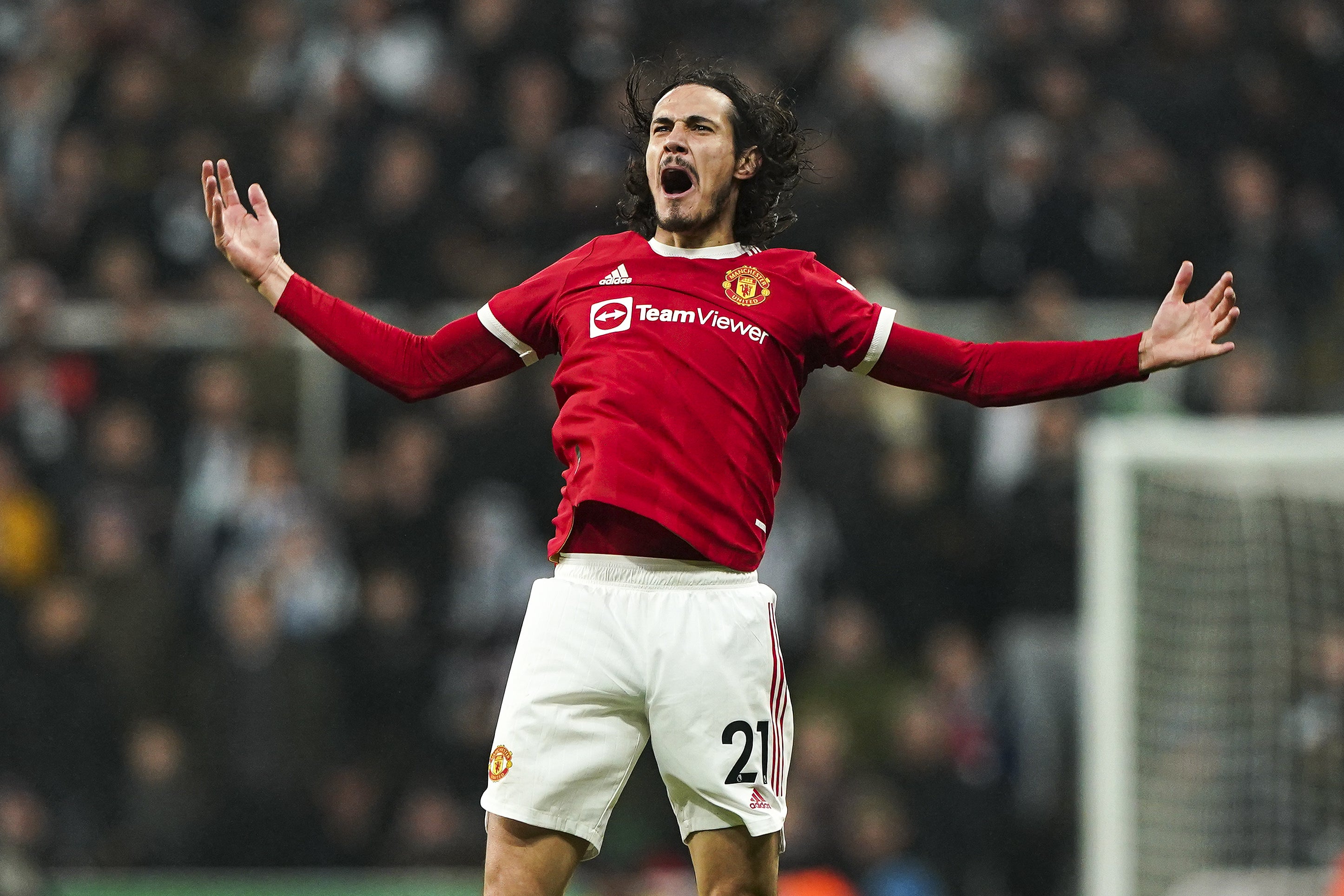
This is Cristiano Ronaldo’s longest barren spell in front of goal in 13 years. That it currently stands at just six games demonstrates what a truly extraordinary player he has been over that period – a goalscorer almost beyond comparison in the modern game – but there were times at Old Trafford on Saturday that when you wondered if this is more than a dry patch.
“Of course he would have wished to score, I would have wished him to score,” Ralf Rangnick, the United manager, said after yet another Ronaldo blank and yet another occasion when Manchester United had thrown away a lead. “Today he had his chances, one of the biggest was when he went past the goalkeeper but it was cleared off the line.”
Rangnick was referring to Ronaldo’s best and only genuine sight of goal in the 1-1 draw with Southampton. A screencap ripped from the live match footage was shared on social media at full time. It shows Ronaldo with the ball at his feet. Fraser Forster and two backpedalling defenders are behind him. Ahead of him is an open goal, just out of the frame.
It was the type of opportunity that any centre forward struggling for form would want presented to them. It was one that you would expect the vast majority to take, especially the all-time leading scorer in international football and a player with 688 club goals to his name. It was an open net.

Ronaldo aimed, Old Trafford expected, but his timid attempt trickled towards goal so slowly, Southampton’s Romain Perraud could cover, intercept and clear. For Rangnick to describe it as a goal-line clearance was generous. It only just about entered the six-yard box. This was a poor miss by anyone’s standards. By Ronaldo’s, it was barely believable.
These misses can happen to any player, even the very best, and they can come at any time. But when taking those chances is that player’s sole purpose in the team, missing them becomes an even bigger problem.
Because make no mistake, Ronaldo’s job at United is to score goals and arguably the greatest goalscorer of his generation is not scoring many.
Across all competitions, Ronaldo’s record reads 14 in 26 games – a healthy 0.53 per-game, though that is significantly down from the 0.81 per game in a mediocre Juventus side last season. In the Premier League alone, he is averaging 0.40 per game. Compare that to 0.87 in Serie A last year.
That decline in output is not especially surprising when Ronaldo’s other contributions are down across the board too. After averaging 5.2 shots-per-game last term, he is managing just 3.9 now. His expected goals (xG) has fallen from 0.83 per 90 over the course of his three years in Turin to 0.58 in Manchester. Strip out penalties, it is 0.49.
And if Ronaldo is not scoring goals, what else does he offer?
The incessant debate about his pressing has finally died down but, even though Ronaldo’s number of pressures per game has increased under Rangnick, it is still the fewest of all centre forwards in the Premier League. And as tedious as that debate became, it may have focused attention on his contributions beyond his sheer volume of goals.
Edinson Cavani missed the draw with Southampton due to a groin injury, telling Rangnick after breakfast on Saturday morning that he did not feel fit enough to play. Availability is perhaps the biggest difference between a good player and a great one, and to Ronaldo’s credit, he rarely if ever feels that is unable to play.
But when Cavani does start, the differences between United’s two veteran centre forwards could not be more stark. Not only does Cavani do the defensive dog work that Ronaldo infamously avoids, he also does the classic off-the-ball work of a natural born centre forward rather than someone who has adapted their game to the role.

Whether it is making runs beyond the last line of defence, occupying the opposition’s centre-halves or off-ball movement to create space for teammates, Ronaldo falls short of the standards Cavani has set in his more sporadic appearances this season. United are a more static, predictable team with him leading the line.
Nearly six months since his return, it is difficult to argue that the second coming has been a success, but there is a case for the defence. Without Ronaldo’s goals and influence, United possibly would not have qualified from their Champions League group and be looking forward to a trip to Madrid next week.
Those numbers mentioned earlier – the 0.53 goals per game, the 3.9 shots, the 0.58 xG – may be in decline but still make Ronaldo one of the leading centre-forwards in European football, plenty good enough for a regular starter at one of the continent’s top clubs.
United did not sign Ronaldo to guarantee qualification from their Champions League group or to score at the same rate as Callum Wilson. Upon his re-signing, senior officials at Old Trafford spoke of a player who “remains one of the greatest in the world”, who can “continue to perform at the highest level for several years to come”, but the years slowly appear to be catching up with him.
It is no secret that Ronaldo stripped back and pared down his game in order to stay competitive at the very highest level. But these past few weeks, either side of his 37th birthday, it is as if that process has chiselled away at so much of one of the most extraordinary players of his generation to leave precious little remaining.
Jorge Mendes, Ronaldo’s agent, once described him as an “alien”, in respect of his extraterrestrial abilities. There is still something supernatural about Ronaldo. He should not be as effective as he is at his age. But time waits for no man, and no alien either.







